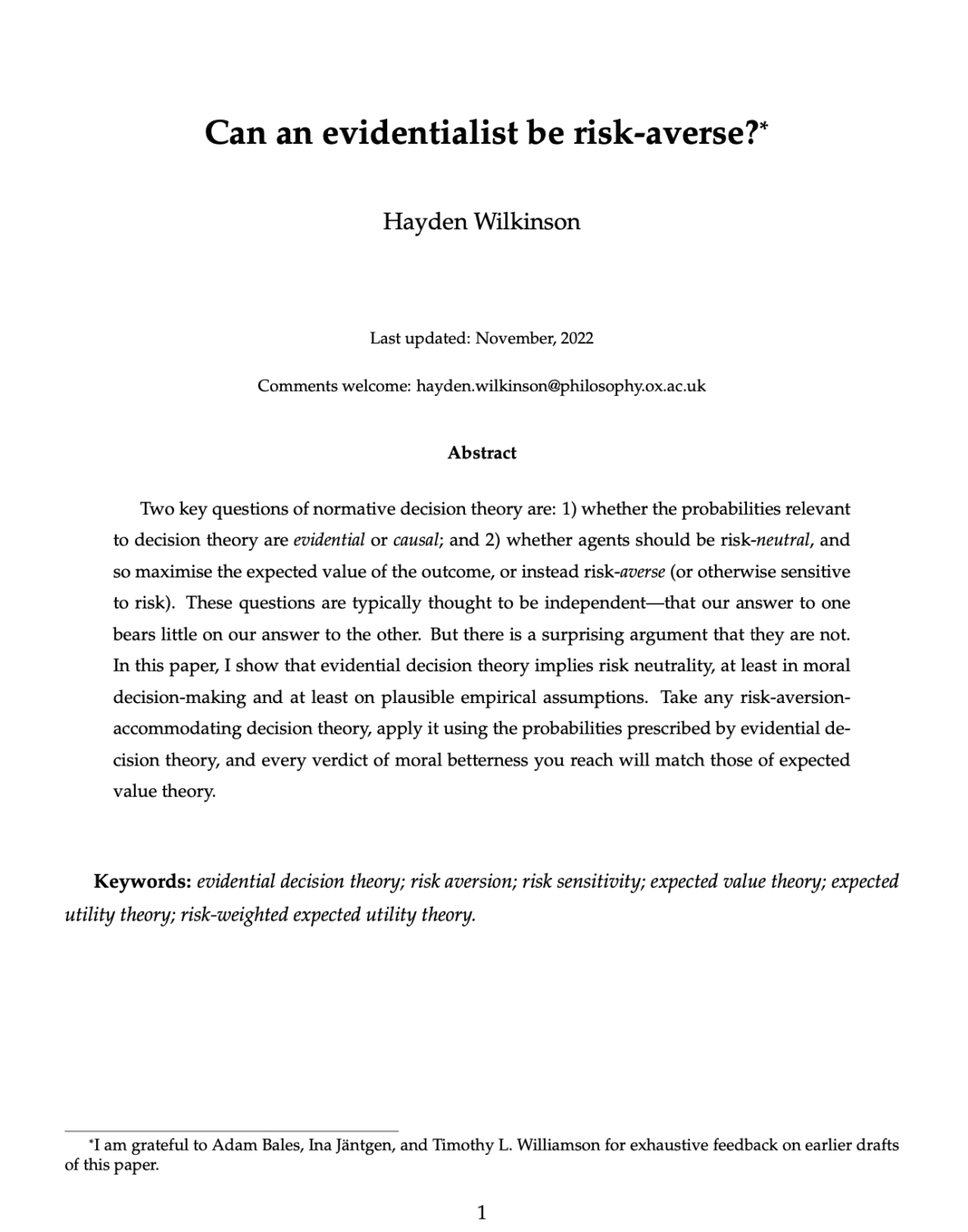Can an evidentialist be risk-averse?
Hayden Wilkonson (Global Priorities Institute, University of Oxford)
GPI Working Paper No. 21-2022
Two key questions of normative decision theory are: 1) whether the probabilities relevant to decision theory are evidential or causal; and 2) whether agents should be risk-neutral, and so maximise the expected value of the outcome, or instead risk-averse (or otherwise sensitive to risk). These questions are typically thought to be independent - that our answer to one bears little on our answer to the other. But there is a surprising argument that they are not. In this paper, I show that evidential decision theory implies risk neutrality, at least in moral decision-making and at least on plausible empirical assumptions. Take any risk-aversion-accommodating decision theory, apply it using the probabilities prescribed by evidential decision theory, and every verdict of moral betterness you reach will match those of expected value theory.
Other working papers
Egyptology and Fanaticism – Hayden Wilkinson (Global Priorities Institute, University of Oxford)
Various decision theories share a troubling implication. They imply that, for any finite amount of value, it would be better to wager it all for a vanishingly small probability of some greater value. Counterintuitive as it might be, this fanaticism has seemingly compelling independent arguments in its favour. In this paper, I consider perhaps the most prima facie compelling such argument: an Egyptology argument (an analogue of the Egyptology argument from population ethics). …
Numbers Tell, Words Sell – Michael Thaler (University College London), Mattie Toma (University of Warwick) and Victor Yaneng Wang (Massachusetts Institute of Technology)
When communicating numeric estimates with policymakers, journalists, or the general public, experts must choose between using numbers or natural language. We run two experiments to study whether experts strategically use language to communicate numeric estimates in order to persuade receivers. In Study 1, senders communicate probabilities of abstract events to receivers on Prolific, and in Study 2 academic researchers communicate the effect sizes in research papers to government policymakers. When…
The scope of longtermism – David Thorstad (Global Priorities Institute, University of Oxford)
Longtermism holds roughly that in many decision situations, the best thing we can do is what is best for the long-term future. The scope question for longtermism asks: how large is the class of decision situations for which longtermism holds? Although longtermism was initially developed to describe the situation of…

